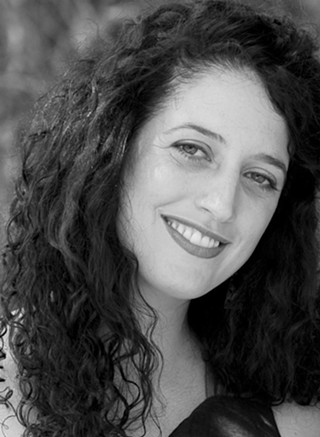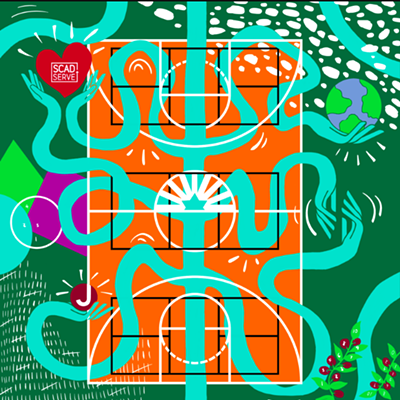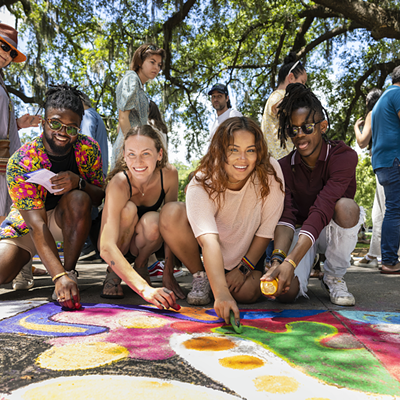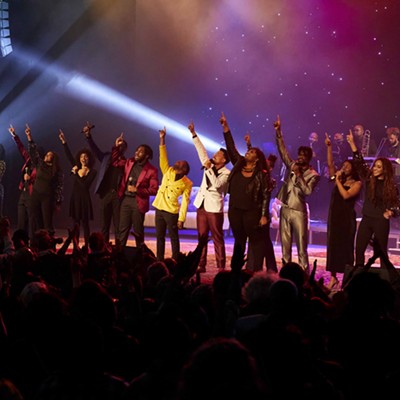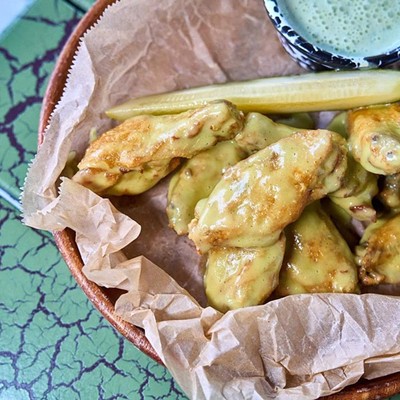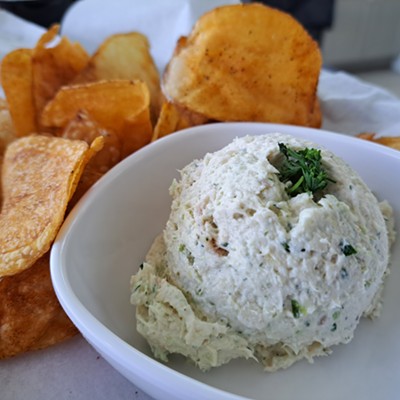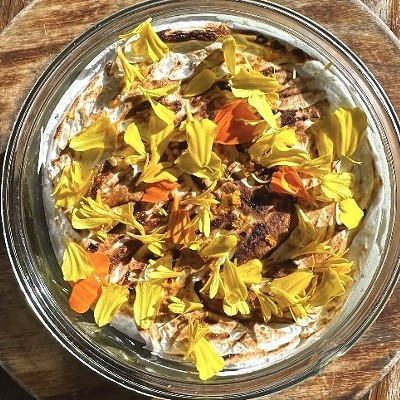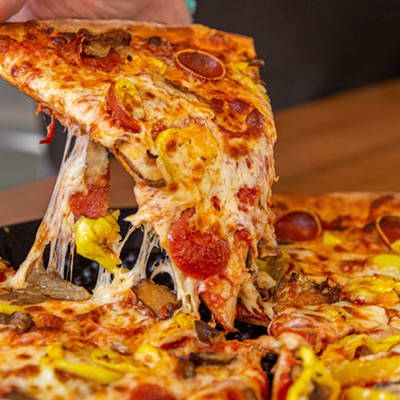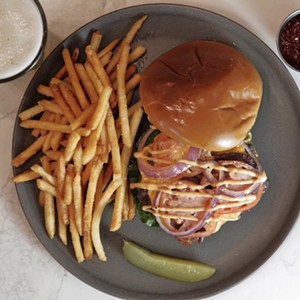ONCE UPON a time, food was about sustenance. You grew it or caught it, cooked it over an open fire, snarfed it down and then went looking for more.
Nowadays, food has evolved into much more than what shows up on our plates. It is elevated to art in its presentation, it conveys heritage through recipes, it connotes political context in its origins—and anyone who’s ever watched Chopped knows it’s entertainment.
Food is central not only to our physical experience but to our intellectual lives, making necessary a particular form of cultural commentary known as food writing. Even before Gourmet magazine began publishing recipes in full-color glory during the war-rationing of the 1940s, we’ve enjoyed reading about good food almost as much as we savor eating it.
Sarah Karnasiewicz came on the scene just as America began waking up to a new appreciation for locally-grown food, heritage seeds, healthy eating and reimagined traditions.
The Connecticut native began writing about food and its myriad contexts in the mid-2000’s at Salon.com, then moved on to an editorial position at Saveur, where she honed her palate as well as her cooking skills. She currently pens a monthly recipe column for the Wall Street Journal.
Karnasiewicz will be in Savannah to talk about food and media at a free public lecture at the SCAD Museum of Art on Monday, April 7. She spoke to Connect from her home in Brooklyn about her career arc, savory waffles and why Georgia shrimp just can’t be beat.
Connect Savannah: What came first, the writing or the food?
Sarah Karnasiewicz: Well, I've always loved to cook, but I didn't start out thinking I would be a food writer. My undergraduate degree is in Fine Arts, and I spent a number of years in the art world after college. I decided after working in museums and galleries that I wanted to get my Masters. I knew I loved photography and writing, and I loved getting out and talking to people and telling stories. I realized that journalism was a way to combine all those things.
CS: And this was right around the time food started becoming a cultural phenomenon?
SK: This was about ten years ago, in 2004, when food writing began bubbling up. All of the sudden, people were talking about food in a new way. [Bestselling author] Michael Pollan made it more of a political discussion, talking about food policy and the impact on public health.
Also, at that time young people in their late 20s—my peers—began talking about food like they had been talking about indie rock or something! I thought it was a trend that was going to be over soon. Looking back, I’ve realized it was just the beginning.
CS: We're still in the midst of a cultural food movement in this country for sure. A lot more people cook now, but doesn't it seem like even more people would rather watch other people cook on TV?
SK: Definitely! It's become entertainment at this point. There's the whole tabloid side of it, you know, the celebrities like Guy Fieri and Rachael Ray...
CS: Don't forget about our Paula!
SK: Of course, Paula Deen! Exactly. It's entertainment the way anything on your cable dial is entertainment.
But I also think that there’s a wider audience that has begun to think about the stories around food and cooking. Food can be an entry point into talking about a lot of different things. It’s not just about a chef or a finished product or what’s on your plate. It’s about the stories. Anthony Bourdain uses it as a way to explore the world!
CS: Any favorite interviews?
SK: I got to interview John Thorne, one of my food writing heroes. He's been writing a newsletter—now a blog—called Simple Cooking since the '80s. And I've interviewed Michael Pollan a few times; he couldn't be smarter or any more lovely.
CS: What's it been like to see this whole food movement evolve?
SK: One of the pieces I edited at Salon that I was really proud of was by a writer named Novella Carpenter, who was actually a graduate student of Michael Pollan's. It started out as thesis work and developed into a longer essay and then a book about raising her own Thanksgiving turkeys on an urban farm in Oakland. That was 2005, and the whole urban homesteading-type coverage just exploded in the next year.
Novella has a new book coming out this summer that I’m really looking forward to reading. So that’s been one of my favorite parts of all this, growing alongside these other writers and seeing all the places that writing about food can take you.
CS: So where has it taken you?
SK: After I left Salon, I went to Saveur, and that was when I went from being a writer who sometimes wrote about food to being a food writer. It was a huge learning opportunity; I learned how to edit recipes and how a recipe is even developed—it was the first time I had worked somewhere with a test kitchen in the office. It was trial by fire, but I got a really good foundation. I've been freelancing ever since.
Now I write more about homecooking and ingredients; I’m kind of a dork and I love the research. I like to go back and dig into old cookbooks and see how recipes have evolved over time.
CS: Is there a dish you're into right now?
SK: I do a column for the Wall Street Journal called Breakfast 2.0, where I take a classic dish from the breakfast canon and give a traditional recipe, then give a second recipe with a twist. Recently I did waffles—and the twist was a savory waffle.
It’s based on a type of bread called “lard bread”—I know, it doesn’t sound very good!—but it’s a staple of Italian bakeries in Brooklyn. It was really fun trying to deconstruct the flavor profile and match it. I ended up with something that shocked me in how much it tasted like the real thing, only in waffle form.
CS: So you started as a writer who loves to cook and you've come full circle to writing about what's happening in your own kitchen. Does that have anything to do with becoming a mom?
SK: My son just turned two, and the mother thing has definitely changed the game. I used to do a lot more travel writing, for sure! The amazing thing about food writing right now is there are so many different ways to be a food writer. You can take it any direction.
CS: What's your take on Southern food?
SK: I was raised as a New Englander and I didn't have a ton of exposure to Southern and Lowcountry food until I was in my 20s. Now it's sort of dangerous every time I go down there!
My husband and I honeymooned on Amelia Island, and we drove down the coast and spent some time in Savannah. We kept stopping for barbecue and shrimp and grits...honestly, the shrimp down there, it’s like a totally different species. I didn’t even like shrimp until I ate it in Georgia. We just don’t get that kind of fresh shrimp up here.

